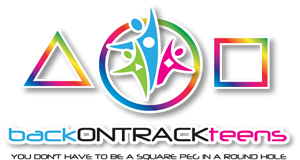
20 Jan How to build effective relationships as a teenager
If you have been following my blog or listening to my podcast you will understand what your ‘bounce-back ability’ is and the importance of building your resilience. It will help you to become flexible like a blade of grass in the wind – it flows and bends yet it always bounces back. Resilience is your very own superpower that will serve you consistently once you have it and help you to stand up against challenging times. It’s also a great strength that will ensure you build effective relationships.
Experiencing a multitude of relationships
As a teenager you will be living a period of exploration. You will be learning new skills, trying out new experiences and sampling work placements to get a feel for how you want your future to develop. By doing this you are shaping your identity, finding your flow and getting to grips with the energy that is your fuel for living a fulfilling life. Part of this journey will involve the relationships with those around you. Your fellow students in education, your close peer group, your family, your friends, colleagues at work if you have a job, teachers at school or instructors at a sports or recreational class. Some of these relationships will be positive, a few maybe be insignificant, and the odd one may even be quite negative.
“Stop letting people who do so little for you, control so much of your mind, feelings, and emotions.”
The second pillar of resilience
Effective relationships form the second pillar of resilience. Relationships come in many guises and they can build you up or they can knock you down. In order for relationships to be effective they also need to be positive, so keep a mental note that good relationships will be challenging, supportive, nurturing and reliable at the time you need them to be.
“Something will grow from all that you are going through. And that will be you.”
How can you build effective relationships as a teenager?
I want to introduce you to a little exercise that will encourage you to see how effective the relationships are that you already have so that you understand how to seek out better relationships in the future.
Find a comfortable spot and make a quick drink or grab a snack. You will need a pen and notebook or a fresh page on your phone or tablet.
Who do you like?
Firstly, take a moment to think about the people in your life right now. Whoever they are and wherever they are, write down their names. It might help you to identify them better if you use subheadings to indicate how you know them such as school, family, friends, after-school swimming class, musical class etc. There will be lots of people so take your time as this exercise is not meant to be a quick win.
When you are finished, review all the names on your list and highlight those that you enjoy spending time with. Separately, make a note of how they make you feel and why you enjoy spending time with them. What benefits do they bring to your relationship? Are they thoughtful, trustworthy, adventurous or inspiring? Where do they appear in your life and how do you spend time with them? It could be your best friend who is always supportive and makes you laugh. It might be a parent who never judges you and provides unconditional love. Or it could be a teacher, mentor or coach that believes in your ability and always encourages you to push a little further to achieve better results. Jot down how you feel about these people and their qualities.
Who is indifferent?
Have a short break if you need one, then carry out the same exercise and highlight the people who are just in your life, for whatever reason, but they don’t add any real value to your life. You wouldn’t go out of your way to spend time with these people and they are present in your life simply because you might have a class with them or they have the same job as you.
Who don’t you like?
Finally, using a different colour or shape, highlight a third list of people. These are the people that you don’t like spending time with and given the choice you would rule them out of your life. Make a note of why you would rather not have them in your life. Could it be that they have a negative energy about them and that they are always moaning? Perhaps they are a school bully or they don’t pull their weight at work. How do they make you feel and what is their behaviour like? Do they laugh at you or humiliate you? Are they a gossip and never keep a secret? Perhaps they steal or take illegal substances and try to pressure you or others into doing the same.
Once you have completed your three lists and thought about why you arranged them so, compare your first and third list and be aware of the differences. Have any similarities appeared?
Your first step to building effective relationships is to understand what makes a good and a bad relationship. Now you have the proof of each and you can concentrate on what you feel is a useful and rewarding relationship to have.
“Whoever is trying to bring you down is already below you.”

Surround yourself with effective relationships
It is a fact that you will become like the people you spend most of your time with. To be resilient, surround yourself with people that support you, challenge you to be better, inspire you, and who listen and empathise with you but don’t allow you to wallow for any length of time.
But you also have to be that person for those closest to you too. Think about that carefully for a minute. The positive behaviours and traits in the people who you want to spend time with are attractive for a reason. By mirroring these traits you will improve your chances of attracting similar people. Think about yourself right now. How do the people around you see you? What would your friends and family say were your best behaviours if I were to ask them? Remember, what goes around comes around.
“Appreciate good people. They are hard to come by.”
The magical science that attracts effective relationships
Here’s the amazing thing … it’s already built into your brain! You have what is know as a ‘reticular activation system’, or RAS for short. The system notices the things that mean more to you and makes you aware of them more frequently by filtering out the unnecessary details and focusing on what is important to you. If you concentrate on positive relationships, feelings and behaviours your brain will automatically prioritise them. How cool is that?
Make your RAS stronger by concentrating on the positives and getting rid of the negatives to build effective relationships as a teenager.
“Don’t change so people will like you. Be yourself and the right people will love the real you.”
Choose the life you want to lead
Practice being the person you would want to spend more time with. With every new relationship that comes into your life, carry out the exercise above. It’s worth revisiting this exercise every so often to review your existing relationships because people can change. An effective relationship now might turn sour in the future and vice versa. Make a choice and build successful bonds as you develop your future.
I’m excited to learn what you discovered when completing this exercise. Please email me in confidence to ask any questions and share your thoughts with me on social media.
Have a great week and practice building meaningful relationships.


No Comments